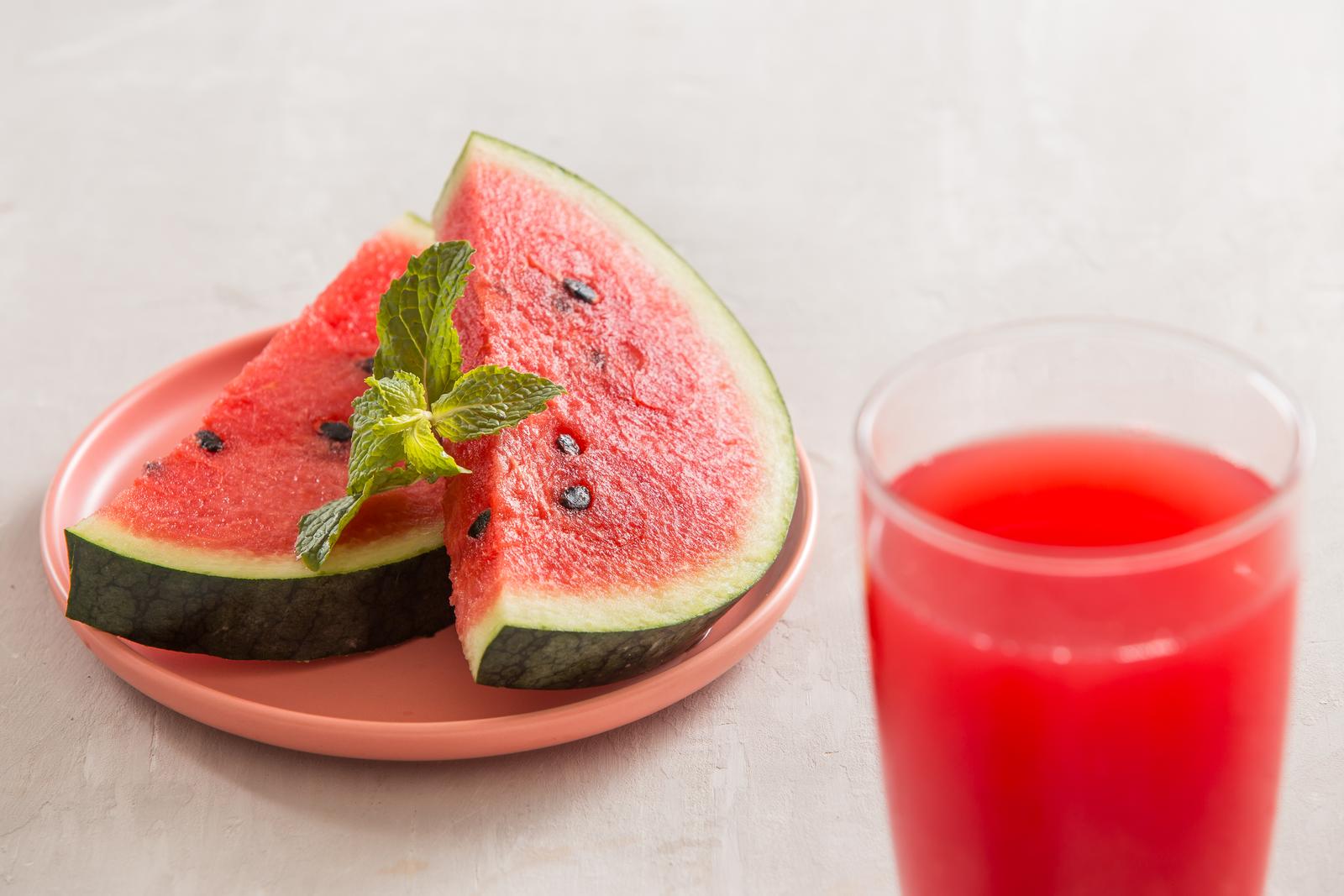Who doesn’t love a cold slice of watermelon on a hot summer day? Refreshing, sweet, and fun to eat, this yummy fruit is a favorite for kids and adults alike.
But perhaps you’ve grown up listening to some rumors that eating too much watermelon can make you gain weight.
We are here to put that age-old debate to rest!
Let’s take the questions one by one.
Contents
Does watermelon make your belly fat?
Some people think that because of its water content, it may actually puff out your belly. Can this juicy delight really make you put on some extra kilos?
On the contrary, it can actually help you lose weight!
Watermelon’s 94% water content makes it a great addition to your diet, because it fills you and keeps you light on your feet!
Watermelon also contains a high amount of citrulline, which converts into the essential amino acid arginine. A published animal study from 2015 claimed that high arginine levels led to reduced fat deposits and improves muscle mass in the rats studied.
Though human studies are ongoing, we may find this to be proven true soon!
Plus, watermelon is a negative calorie fruit, meaning that it typically burns more calories during digestion rather than adding them, which means you burn more than you eat!
Is watermelon good for losing weight?
Watermelon is a super low-calorie food, containing only 46 calories in a cup serving.
According to the Mayo Clinic, a pound of body fat needs around 3,500 calories, so you can be assured that watermelon won’t let you gain weight.
People looking for low-fat diets often opt for this fruit because a cup of watermelon contains less than a gram of fat, while its high water content makes you feel full.
If you’re looking to portion smartly, sources say that a 100 gram serving of watermelon contains 30 calories.
Keep this in mind when you’re making juices, shakes, popsicles, or enjoying a watermelon on its own!
Where do the fears come from?
Diets put their focus on the glycemic index, which is a measure of how quickly the carbohydrates in a particular food raise blood sugar levels.
Watermelon ranks high on the glycemic index, a measurement of 76 on the 100-point scale, so people think watermelon will ruin their diet and make them gain weight.
However, a 1-cup serving of watermelon contains:
Protein= 0.93 g
Carbohydrate, by difference= 11.48 g
Energy= 45.6 kcal
Sugars= 9.42 g
Total dietary fiber= 0.61 g
Looking at this information, it would take 10 cups of watermelon to reach the 100-gram threshold used to measure the glycemic index of food.
However, the glycemic load is a more accurate indicator of the impact of watermelon on blood sugar.
It considers the amount of carbs present in a serving-and with watermelon, one serving ranks 4 on a scale of 20, meaning-it does not cause a spike in blood sugar or make you gain weight!
What happens if you eat too much watermelon?
How much watermelon is really too much? You may find it hard to resist a slice of sweet and refreshing watermelon on a hot summer day.
And as we can see in the points stated above, it is a perfectly safe and healthy fruit.
Nutritionists have not yet defined an unsafe limit for its intake, but as with all things in life, a balance is always recommended.
If you eat watermelon without restriction, you may feel abdominal discomfort, a sense of bloating, gas, and diarrhea.
This is because of its high FODMAP content.
FODMAP refers to a group of fermentable short-chain carbohydrates that are non-digestible or are slowly absorbed in the small intestine.
These include a range of carbs, such as oligosaccharides, disaccharides, monosaccharides, and polyols.
Nutritionists advise people with irritable bowel syndrome (IBS) to consume low FODMAP diets, because eating irritant foods can lead to adverse digestive effects.
But even in people without IBS, an excess of these carbs may lead to gas and bloating.
Also, if you’re conscious of your sugar intake, you can stick to the following recommendations by the U.S. Department of Agriculture (USDA):
2 cups of fruit per day for those on a standard 2,000-calorie diet-which equals roughly 300 grams in the case of watermelon.
Some popular diets that use buzzwords as selling points end up portraying a very unhealthy view of food.
Remember, no food is inherently good or bad. It just takes an understanding of science to build a moderate diet that suits you and keeps you happy!
Ten fun facts about watermelon
1. Watermelon comprises 94% water.
2. Ancient explorers used to make use of watermelons as canteens to carry their foods.
3. There is a debate about whether watermelon is a fruit or a vegetable!
4. The word “watermelon” first appeared in the English dictionary in 1615.
5. From planting to harvesting, it takes a watermelon around 90 days to grow. But we can’t wait to find it on our table!
6. In China, watermelon rind is used as a vegetable; pickled, stewed, and even stir-fried!
7. Even Americans like to cook it like a vegetable. The earliest published cookbook in the U.S. was titled American Cookery and had a detailed recipe for watermelon rind pickles.
8. Egypt was the first country to record a watermelon harvest nearly 5,000 years ago. It is depicted in Egyptian hieroglyphics on walls of their ancient buildings. Watermelons were even placed in the burial tombs of kings to keep them nourished in the afterlife.
9. The Guinness World Record for the world’s heaviest watermelon went to Chris Kent of Sevierville, Tennessee in 2013, for growing a watermelon that weighed a whopping 350.5 lbs!
10. Sometimes watermelons can get cracked because of the heat and are known as Hollow Hearts. They are perfectly safe to eat though!

